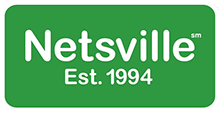Google Mistakenly Deindexes Site Dedicated to SEO
After falsely flagging the popular search engine optimization site as being hacked the site was deindexed and taken down from all Google searches. This has to be one of the most ironic things to ever happen on the internet but it allowed for SEOland to get good insight on what happens when your site is removed from the index. Find out more about SEOlands relegation below!

What we learned when Google deindexed our site for a day
What can you do if you get deindexed by Google? These are lessons we learned.
Barry Schwartz on December 6, 2018 at 8:44 am
Last Friday, Google mistakenly delisted Search Engine Land from its index and search results. That meant none of our pages showed up in Google search — none.
Fortunately, we were able to get a response from Google on Friday morning. We were told that its “system misidentified the site as being hacked” and thus was mistakenly removed from the index. Google said it had caught and fixed the issue on its end early that morning, removing the hack classification. However, our site didn’t return to the index at around 5:30 p.m. that evening.
The irony of a website dedicated to covering search engine marketing getting accidentally delisted by Google was not lost on us (or the community). Following are more details on what happened, how Google responded to our follow-up questions, and most importantly what SEOs, webmasters can learn from our dramatic day.
What we’ve learned so far
In total, Google did not include Search Engine Land in the results for more than 12 hours on Nov. 30.
What happened? We’re told the site was completely removed (rather than given a warning) because Google’s hacking classifiers had some sort of bug and classified our site as being hacked when it was not. “This was a mistake in our systems — a false positive that indicated that the site had been hacked,” a Google spokesperson said.
Why no warning before removal? One of the biggest questions we received from the SEO community was why didn’t Google just label the site as being hacked in the search results? Why did Google take the severe step of removing the site completely from the index?
“If we determine a site is hacked, there are rare instances in which we may deindex the site,” Google told us. “For example, if spammers deface organic pages, including the homepage, and replace the original content entirely with spam. These types of hacks are uncommon.”
This makes sense if a site is so badly hacked that Google does not want searchers to risk having their computers infected after visiting a compromised site. So Google delists these types of hacked sites from the index entirely. But obviously, when Google makes a mistake, it can have significant ramifications for the site affected.
Do false-positives happen often? We asked Google if this is a common occurrence. That it will deindex sites due to detected bugs in the hacking classifiers. “Mislabeling a site is something that should never happen,” Google responded. “Unfortunately we don’t always get it right,” Google added. Then Google explained a bit more about how it works, “There are complex systems at play to label sites, as you can imagine automatically determining the hacked status of a website is no easy task.”
“In this specific case we weren’t able to spot the mistake in the backend before the site was delisted as hacked from our Search results,” Google told us.
We do know it’s relatively rare, but Google did not indicate how often these mistakes happen.
Why did it take several hours for an email? Google Search Console is programmed to send automated email notifications about site hacks and other website issues to site owners. For some reason, in this case, it took several hours for that email to go out.
The site was likely deindexed by Google around 3 a.m. Friday morning. We learned of the problem from readers on social media. We never received a warning or a notice that there was a hack that we needed to fix within a certain timeframe before the site was removed.
“We strive to be as fast as possible to ensure website owners are in the know as things evolve on Search,” Google said. “Ideally the machinery should work in unison and in real-time. As you saw in this case, the reality is a bit different: there’s definitely room for improvement here.”
Of course, we would love more answers. We still are unclear what specifically caused Search Engine Land to be classified as a hacked site. Was it truly just a random error or was there something that triggered the false positive? Google had yet to provide further detail on this question by the time we published this story.
We would also like further clarification about the average time it takes Google Search Console system to send out email notifications, particularly notifications about serious problems like the one supposedly detected on Search Engine Land.
What happened to our traffic that day?
Every site is different, of course, but we’re sure you can imagine that essentially losing organic search traffic for a day stung in terms of traffic. But the good news was other sources picked up a lot as users and community members sought alternate avenues to access our content. Compared to an average Friday, Bing organic traffic increased by more than 15 percent, for example. What really minimized the losses, though were direct, referral and social hits. Direct traffic was up more than 25 percent from the average. Referral increased 90 percent, and, social media traffic exploded, jumping more than 300 percent, mostly directed to our day’s coverage of our unfortunate deindexing.
Read More At SEOland.com
Based in Rochester, New York, Netsville is an Internet Property Management company specializing in managing the Digital Marketing, Technical, and Business Solutions for our customers since 1994. For more information, please click here.

